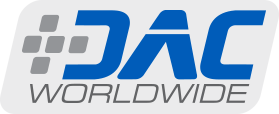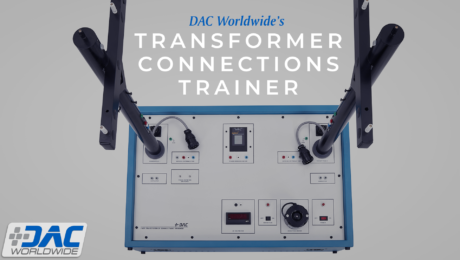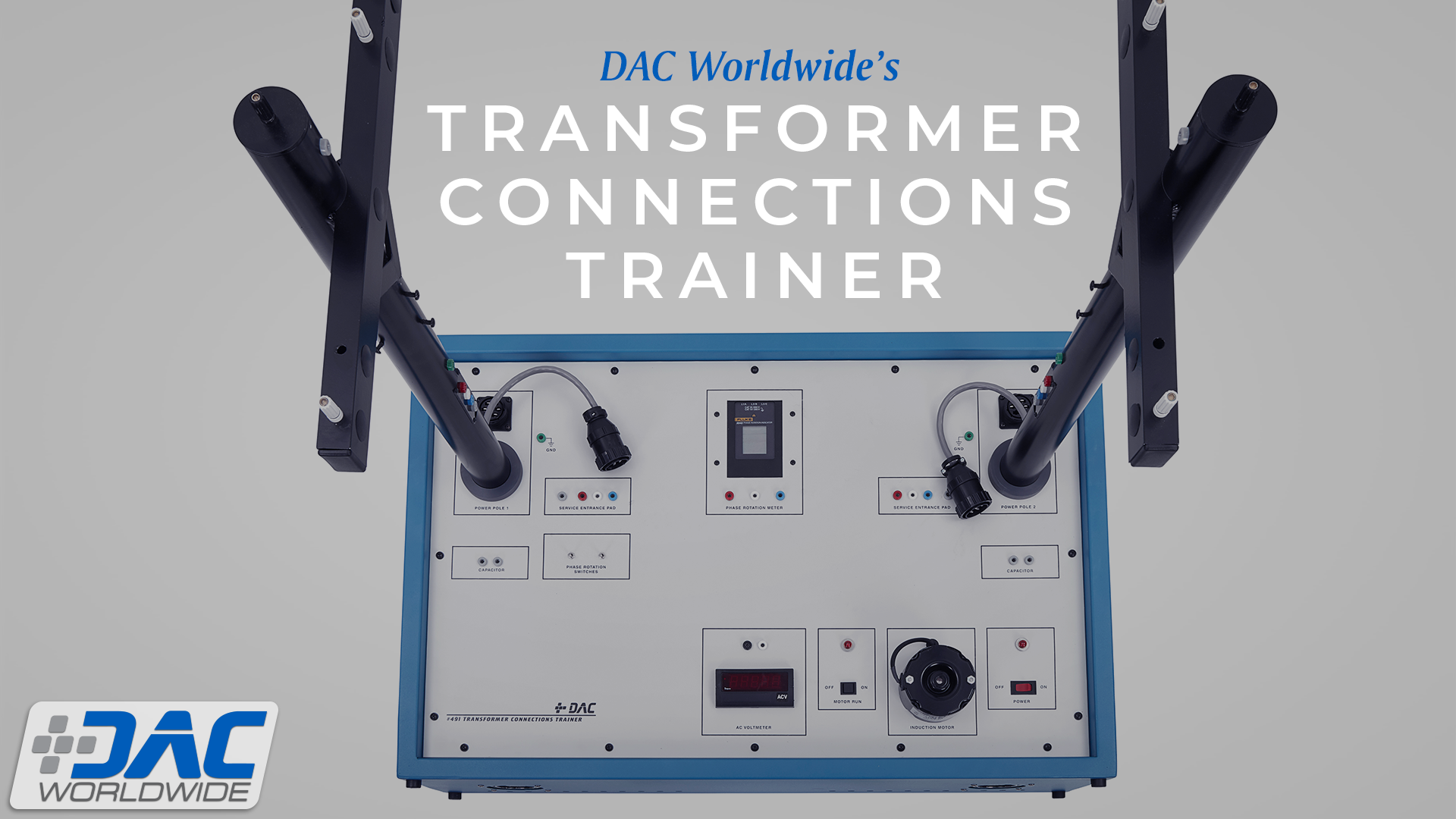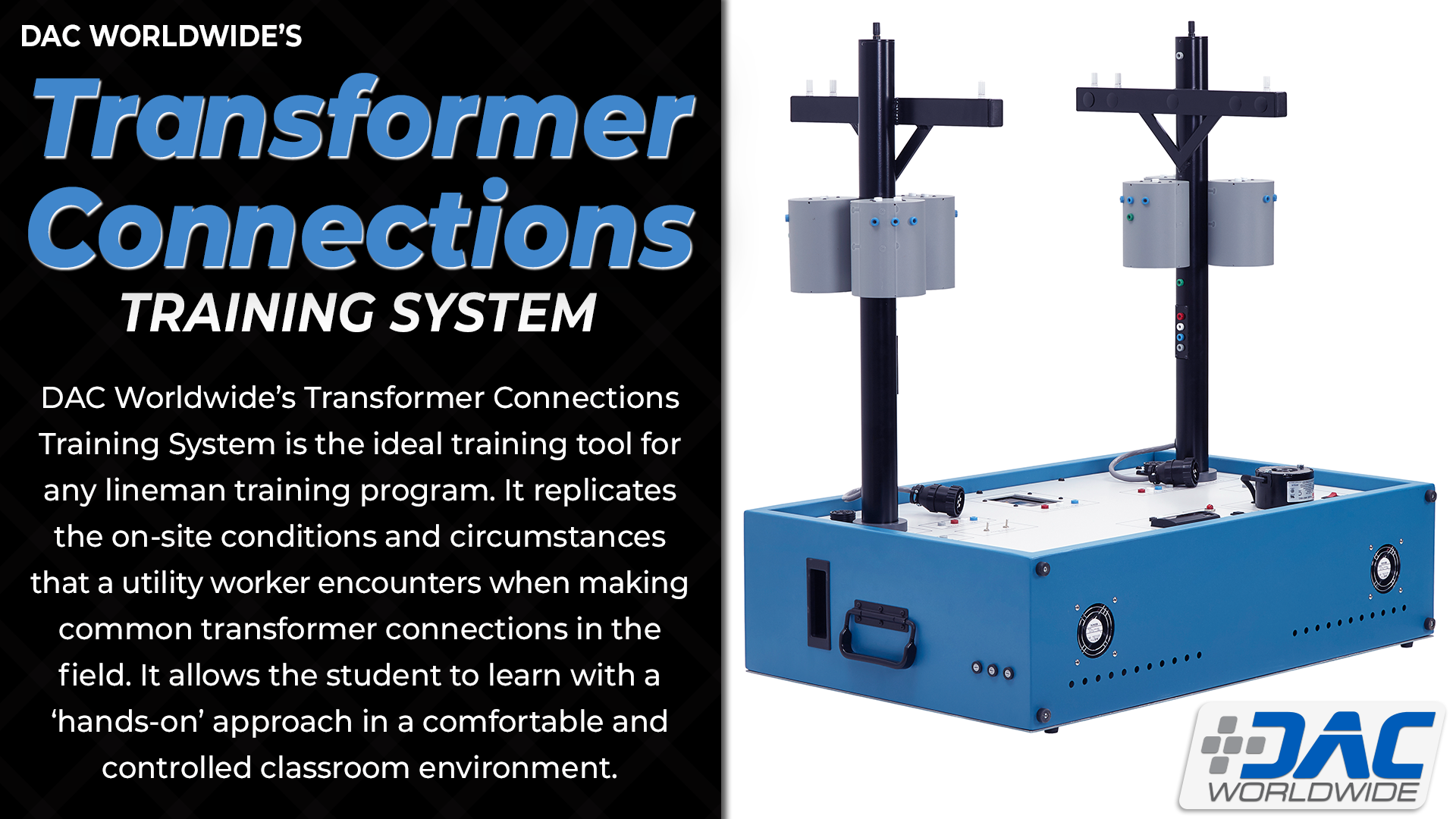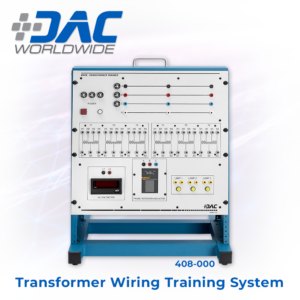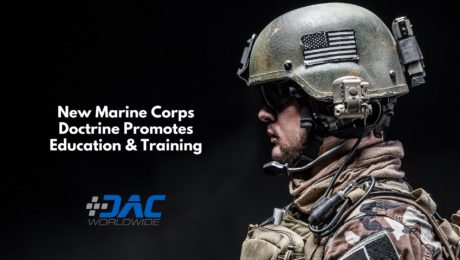Fundamental Electrical Skills Training: Powering the Path to Success
No matter their experience, skill level, or desired specialty, all individuals aspiring to become electrical professionals need the same fundamental electrical skills. These include understanding the basic principles of electricity and working with common electrical components, such as wiring, motors, and circuits. By mastering core skills like these, learners can help ensure they work safely and efficiently in whatever specified path they choose, whether that is industrial, commercial, or residential electrical careers.
As with any discipline, learning fundamental skills establishes a foundation from which a learner can build more complex concepts and skills. An electrician who now wires entire buildings for manufacturing processes was once a student learning about electric current. Furthermore, that same electrician could choose to expand their skills into more advanced or niche areas, such as performing industrial maintenance for the robotic arms they run power to, which would require that they rely on their understanding of basic PLC operation to progress to the complex coding needed to ensure manufacturing level precision.
Additionally, an electrical technician’s understanding of basic concepts and their abilities helps build confidence that translates to efficiency. For example, an HVAC technician is able to quickly restore air conditioning to a home because they understand how the circuit board, fan motor, compressor, and other components work both individually and together to create a working system. However, if the technician did not have a knowledge of wiring practices, the job would move much more slowly and, if done wrong, could even be dangerous.
In the same vein, industrial workers that know the do’s and don’ts of electrical practices can help recognize and prevent risky electrical setups. This makes a workplace safer for everyone and can help a company avoid downtime. In essence, fundamental electrical skills help prepare future technicians of many career paths to handle any job they will face in the field and provide the first step in pursuing a successful career in the electrical field.
DAC Worldwide’s Electrical Training Systems
DAC Worldwide offers many training systems that teach learners the fundamental electrical skills they need for a successful career. Each trainer is compact and sturdy, allowing for ease of relocation and longevity of use. By using these systems, learners will practice crucial hands-on skills related to focused electrical topics. Below, we’ve included a sampling of our most popular electrical trainers.
400-PAC – Modular Basic Electricity Training System Plus
The 400-PAC covers basic AC and DC electrical principles, including installation, operation, and troubleshooting for multiple applications. Learners can expect to gain a greater understanding of how electricity is used for power and control in industrial, commercial, and residential settings.
This trainer uses 43 activities to engage learners in lessons covering topics such as terminology, background theory, component examination and testing, circuit design, and more. A built-in circuit breaker, transformer, and internal power supply create working voltages of 24VAC/24VDC. This allows learners to gain hands-on experience with skills like calculating and regulating voltage in a circuit, operating a clipper circuit and full-wave bridge rectifier, loading dry cells, utilizing indicator lamps and toggle switches, and much more.
420-000 – 1-Phase Motor Control Training System with Manual Starter
The 420-000 is a single-topic trainer that allows learners to focus solely on navigating the operation, wiring, troubleshooting, and application of an industrial single-phase AC motor with a manual starter. With redundant safety systems provided and a keyed instructor power switch, learners can safely study individually or in small groups.
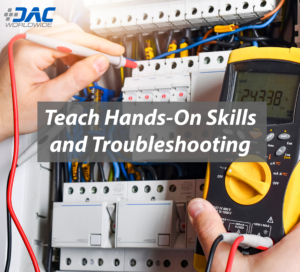 The system also comes equipped with a motor, manual motor starter, circuit breaker, electrical interlock, pilot light, e-stop switch, and four instructor fault switches. Learners use shielded banana-jack connections to wire the motor. While self-contained, the trainer may be expanded with supplemental components, such as a piloting switch module and a motor loading device, to teach additional topics.
The system also comes equipped with a motor, manual motor starter, circuit breaker, electrical interlock, pilot light, e-stop switch, and four instructor fault switches. Learners use shielded banana-jack connections to wire the motor. While self-contained, the trainer may be expanded with supplemental components, such as a piloting switch module and a motor loading device, to teach additional topics.
422-000 – 3-Phase Motor Control Training System with Manual Starter
Like the 420-000, the 422-000 is a self-contained, single-topic trainer that allows for independent or small group study. Multiple components, such as a keyed instructor power switch, permanent internal grounding, circuit breaker with lock-out/tag-out, and a large emergency stop switch, ensure learner safety. All equipped components are UL and CE certified.
This trainer offers 21 activities for learners to practice hands-on skills for operating, wiring, and troubleshooting an industrial three-phase AC motor with a manual starter. Some examples of these skills include wiring a three-pole pushbutton motor starter as a motor controller and employing the instructor fault switches to troubleshoot a drum-type reversing switch manual starter.
429E – AC Variable Frequency Drive Training System Plus
The 429E uses industrial-grade components, such as an industrial 3-phase motor and an Allen-Bradley PowerFlex 40 variable frequency drive, to teach AC drive programming, system troubleshooting, control wiring, and other industry-relevant skills. Various inputs and outputs and a programmable acceleration/deceleration with an on-board PID control loop allow learners further practice in understanding voltage, relay, resistance, and amperage.
Other course content includes topics like minimum and maximum frequency, jog parameters, skip frequency bandwidth, and checking and setting acceleration and deceleration timing. Eight fault insertion switches provide thorough real-time troubleshooting practice.
461-000 – Basic PLC Training System (AB Micro850)
The 461-000 provides a wealth of information for learners to develop a firm understanding of industrial PLCs, with emphasis on the current generation Allen-Bradley Micro850. This trainer features eight DC input switches, eight DC output LED lights, two 25-pin D-Sub input/output connectors, multiple safety components, and more. Eight fault insertion switches are also built into the system to help learners increase their proficiency with PLC troubleshooting.
An optional textbook offers more study for relevant topics, such as introducing Boolean algebra and Veitch diagrams, understanding logic gates, creating subroutines and sequencers, and much more. The trainer can also be expanded by connecting it to other training systems that teach process control, sensors, motor control, fluid power, and more.
Boost Your Electrical Training Program Today
We aim to make training more memorable and effective so future electrical technicians can thrive in their chosen career paths. For more information on which training aide may best fit your needs, contact a DAC Worldwide consultant today.
- Published in News
Pump It Up! A Primer on the Importance of Pump Maintenance
When you hear the phrase, “pump the jam” your mind could be drawn – if you are of a certain age – to Technotronic’s 1989 club hit “Pump Up the Jam.” But you could also be a machine operator in a jam factory where pumps are used in the production process and must be routinely maintained due to jam viscosity, seeds and fruit chunks, and the sugary buildup on seal faces in sealed pumps.
In addition to jam factories, pumps are used across industry for water movement, chemical processing, and fluid management, as well as for moving harsh, corrosive, or heavy-duty substances. These fundamental components are utilized in agriculture, food and beverage, mining, petroleum, power generation, and pharmaceutical applications to move everything from wastewater to petroleum, sludges to slurries, dairy products to wine, and on and on. Pumps come in an assortment of types and configurations and industry uses a variety of them, such as turbine, piston, and gear pumps.
The most widely used pump across industry is the centrifugal pump, which is a dynamic pump, meaning it adds kinetic energy to the substance that increases the fluid speed and creates pressure. As expected with any kind of mechanical component subjected to constant pressure and operation, wear and tear of pumps is inevitable. However, with a solid understanding of the most common problems occurring from prolonged pump operation and a routine maintenance plan, full scale pump failure and costly production shut downs can be avoided. The most prominent problem with pumps that routine maintenance can prevent is cavitation.
What is Cavitation?
In relation to pumps, cavitation is the phenomena where vacuum bubbles form within fluid being moved through a system. When these bubbles – or voids – collapse they create shockwaves. Over time and repeated use, these shockwaves create premature wear on a pump impeller and lead to component failure if no maintenance is performed. Not only does cavitation lead to component failure, but when present it is extremely noisy and causes vibrations, which results in a loss of process efficiency.
In addition to cavitation, common things that technicians should watch for on industrial pumps include bearing and lubricant condition, shaft seal condition, pump vibration, and pump discharge pressure.
What Pump Maintenance Tasks Can Prevent Cavitation and Pump Failure?
As with any machine, consistent maintenance is key to process efficiency and prevention of equipment failure. In pumps, maintenance can extent equipment life, decrease operating and costs, and prevent specific component ills like cavitation. Generally, it’s recommended to group your maintenance program into three categories: routine, quarterly, and annual. Examples of tasks to track and check include adding oil to the bearing reservoir, cleaning and oiling governor linkages and valve stems, and inspecting disc couplings.
But how can you ensure that maintenance technicians and operators at your facility have the know-how to perform these tasks correctly?
DAC Worldwide’s Pump Maintenance and Operation Training Systems
DAC Worldwide offers an array of options for up-skilling or assessing your employees for pump maintenance and operation, including:
Centrifugal Pump Fundamentals Training System Plus (227-PAC)
The Centrifugal Pump Fundamentals Training System Plus (277-PAC) offers hands-on training for basic centrifugal pump operation and maintenance. This system can be used to demonstrate pump cavitation, fundamental operational principles, and the effects on flow and pressure by varying static head and piping configuration. The Centrifugal Pump Fundamentals Training System is a perfect solution for introductory operations and maintenance courses related to centrifugal pumps and process systems.
This system features a centrifugal pump with an open impeller, a variable speed DC pump motor with a controller, and a modular, clear PVC piping system with a variable-height support structure that allows for multiple configurations of the tank, pump, and motor to create new flow and static head conditions. The system also offers optional pipe spool variations to create even more process flow conditions.
Pump Maintenance Training System Plus (275-PAC)
DAC Worldwide’s Pump Maintenance Training System Plus (275-PAC) is a benchtop training device featuring a standard ANSI centrifugal pump mounted on a heavy-duty, 7-gauge, formed-steel, powder-coated baseplate. This systems features real-world pump components for practicing the disassembly, packing, and reassembly of common centrifugal pumps, as well as common pump maintenance such as impeller clearance adjustment and mechanical seal replacement. This system also features a clear acrylic backhead for visibility of the seal area.
Pump Maintenance and Alignment Training System Plus (275E-PAC)
The Pump Maintenance and Alignment Training System Plus (275E-PAC) is a benchtop training system featuring a standard ANSI centrifugal pump and a simulated motor element. This combination along with a replaceable ¾-in. diameter steel shaft with keyways allows users to practice shaft alignment skills. Further, the motor element features flanged bearings that can be adjusted to allow for angular and parallel misalignment. This system also allows users to practice complete pump tear-down and assembly. The Pump Maintenance and Alignment Training System also features a clear acrylic backhead to show pump packing procedures and the installation of mechanical seals.
Additionally, DAC Worldwide has dissectibles, component cutaways, and sample boards for expanded industrial pump training. DAC’s sister company, Amatrol, also offers pump systems that can bolster your industrial training program.
Amatrol’s Centrifugal Pump Learning System (950-PM1) and Expansion Systems
Amatrol’s pumps learning systems cover industry-relevant skills including how to operate, install, maintain, troubleshoot, and select a variety of pumps, as well as system design. The base learning system features a centrifugal pump, but allows for the use of several different pumps for expanded training; these pumps include: parallel pumps, turbine pump, diaphragm pump, peristaltic pump, piston pump, gear pump, magnetic pump, and centrifugal pump with stuffing box.
- Published in News
DAC Worldwide’s 4-Variable Process Control System: The Ultimate Instrumentation Training Tool
Let’s say on the way to pick up you prescription at the drug store, you stop at the gas station, fill up your tank, and pick up a cold soda pop. By the time you get home, you’ve interacted with at least three products that use process control and instrumentation in their creation. Oil and gas, pharmaceuticals, and food and beverage are only three of the countless number of industries that rely on process control and instrumentation to produce their goods.
What is process control and instrumentation?
According to the Process Industry Informer’s Phil Black, “Process control is used in continuous production – in manufacturing and in other fields and industries where some kind of material is produced without any kind of interruption – as well as in ‘batch processing.’ It’s used to automatically control the conditions in which a product is made – ensuring better quality and efficiency.”
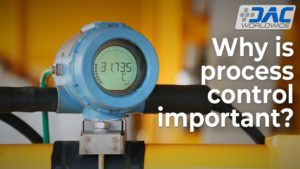 And the applications of these processes are only getting started. According to Amatrol’s Duane Bolin, “Process control is big business all over the world. The global economic value of the process control systems market is estimated to be more than $120 billion. This value will only continue to grow as automation and Industry 4.0 technologies enable process control systems to further increase the productivity and efficiency of manufacturing facilities.”
And the applications of these processes are only getting started. According to Amatrol’s Duane Bolin, “Process control is big business all over the world. The global economic value of the process control systems market is estimated to be more than $120 billion. This value will only continue to grow as automation and Industry 4.0 technologies enable process control systems to further increase the productivity and efficiency of manufacturing facilities.”
Why is process control important?
Much like its applications, the importance of process control is nearly limitless in industry, but here are three major reasons:
-
Improved Process Efficiencies
Process control allows for improved process efficiencies because the data produced by sensors can be analyzed resulting in more effective decisions.
-
Limited Staff
Because processes can be automated, a small staff of operators can control the most complex processes from a central location.
-
Ensures Safety
Manipulating substances to produce a product is a very demanding and potentially hazardous process. The controlled environments and components within process control limit danger to operators.
How do I set up process control training for our school or industry training center?
So you have a workforce or classroom full of people that need to be upskilled on process control and instrumentation practices. Where do you begin? Technical training innovators like Amatrol, DAC Worldwide, Bayport, and Pignat offer a variety of concentrated, single-topic options for process control training like Amatrol’s Temperature (T5553) or Pressure (T5555) systems, DAC Worldwide’s Calibration Training (616-000) system, Bayport’s Flow Level Trainer (120-CFLCD), or Pignat’s Gas-Liquid Absorption (ABS/2000) system. However, there is one system that not only offers hands-on skill building across all forms of instrumentation training, but is also customizable to an almost limitless degree to exactly meet your training needs:
DAC Worldwide’s 4-Variable Advanced Process Control Training System (603-000)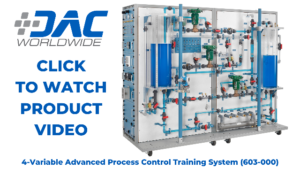
DAC Worldwide’s 4-Variable Advanced Process Control Training System (603-000) allows candidates to build hands-on skills in flow, level, pressure, and temperature process control applications. This system features an open physical architecture and wiring design, which allows for incredible adaptability and customization. This system can be configured to meet almost any process control training need or industry application and allows you to modify it as needs or technology changes.
The large size of the system and more complex measurement and control environment enables for PLC and DCS control systems, which means it can be set up for one large complex loop or two individual loops. This system can also feature Hart, Foundation Fieldbus, and Profibus communication systems.
The DACW 4-Variable Advanced Process Control Training System can be used for everything from interpreting PNID drawings, to teaching system walkdowns and PID control methodology, to the creation and maintenance of instrument loops, as well as large-scale system troubleshooting. This instrumentation training system includes a dynamic and complex piping system with a PID on each side, which allows for experiments in true cascade control – a topic that is uniquely covered by the 603-000 in the technical training industry.
There are also instrumentation packages – including Endress Hauser, Rosemount, & Honeywell – available to fully meet the training needs that most closely resemble the equipment you’ll see in your company or local industry.
Even More Process Control Option from DAC Worldwide!
If 4-Variable Advanced Process Control Training System is a bit more than what your training program needs, DAC Worldwide offers a full line of process control and instrumentation options. Some of these include single-topic options such as Analytic Process Control (605-000), Temperature Process Control (602-PAC), and a PID Controller Trainer (608-000).
How Can DAC Worldwide Help Your Training Program?
With more than four decades of experience in industrial training, DAC Worldwide’s reach extends far beyond just electrical products. In fact, DAC Worldwide possesses knowledge and expertise in a wide range of technical topics, including Electronics, Fluid Power, Heat Transfer & Steam, HVAC, Machining & Measurement, Mechanical Drives, Oil Production, Process Control & Instrumentation, and Pumps, Compressors & Valves.
Our training aids range from training systems and sample boards, to models and dissectibles – with real-world, hands-on learning being the core of each product. For more information on how DAC Worldwide can enhance your industrial training program and provide you with the best training solutions available, please click here.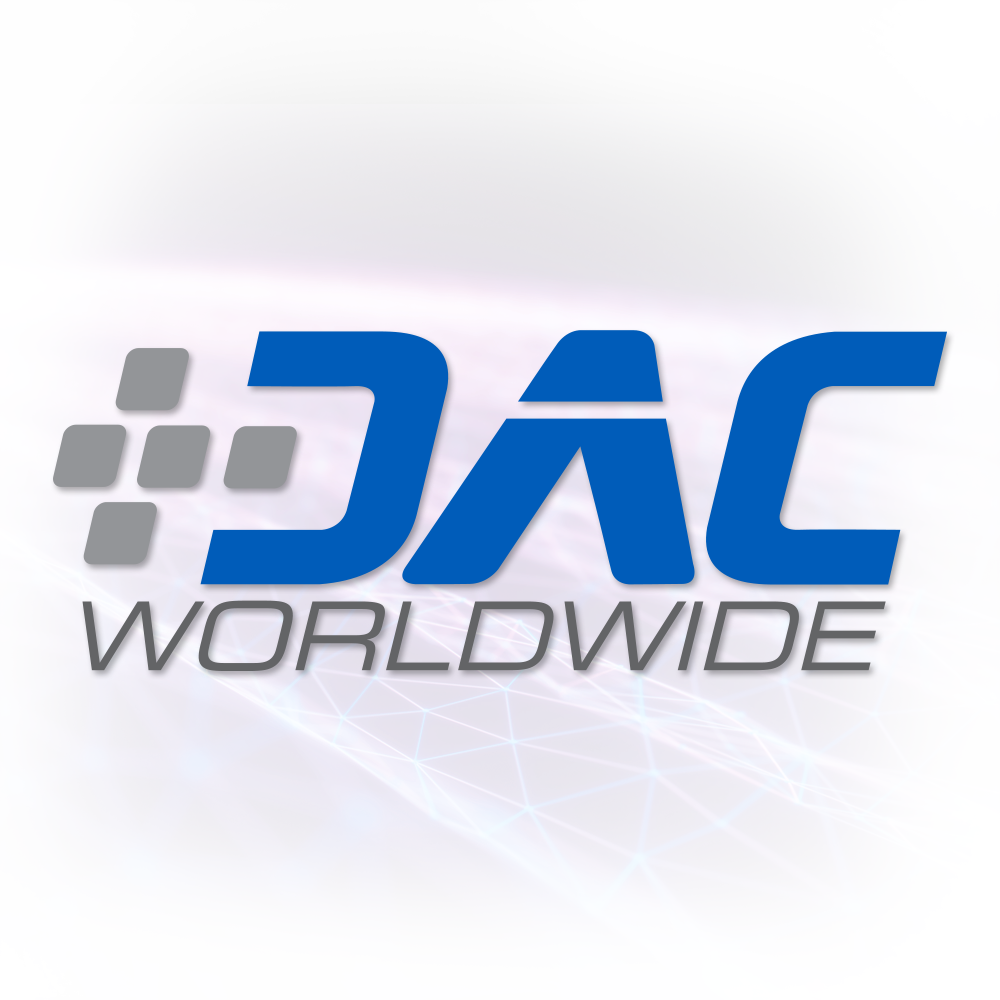
- Published in News
Staying Protected: Hands-On Transformer Training in Safe, Controlled Environment
To view a multimedia presentation of “Staying Protected: Hands-On Transformer Training in Safe, Controlled Environment”, please click here.
The life of a power line worker can be a precarious one. From maintaining interstate power grids to servicing transmission lines and towers, line workers are often tasked with jobs that aren’t for the faint of heart.
The profession is considered one of the most dangerous in America, with 35 fatalities in 2019 around the United States. The compensation for such an intimidating trade, though, is notable.
According to salary.com, the average lineman salary in the United States is $80,026, as of February 2021. The career offers very realistic expectations of making upwards of $100,000 annually before turning 25 for younger students.
Today, the career is becoming safer, thanks to developing safety technologies. There are Linemen Training Schools all over the United States and Canada, with many finding interest in the unique field of high-voltage electrical technology.
Despite the demands, it is critical for workers to be properly trained on the power that electricity holds, both physically and metaphorically. Due to its hazardous nature, becoming a lineman requires extensive technical knowledge and safety skills to help ensure worker safety.
In the past, teaching the ins and outs of transformers was primarily paper-based, with some programs even opting for full-voltage training. Most of the time, the “real” learning was done on-the-job.
But things have changed in the electrical technology field. Training future lineworkers no longer requires a book-only approach, or the dangers that come with full voltages. DAC Worldwide’s Transformer Connections Training System (413-000) is a utility worker training aid that provides learners with real-world, hands-on practice working with transformers.
What is the Transformer Connections Training System?
DAC Worldwide’s Transformer Connections Training System is the ideal training tool for any lineman training program. It replicates the on-site conditions and circumstances that a utility worker encounters when making common transformer connections in the field. It allows the student to learn with a “hands-on” approach in a comfortable and controlled classroom environment.
Gone are the days of full-voltage training and paper-based learning, as the training unit is internally fused and includes a recalibrated reduced-voltage meter to make training safe, efficient, and realistic. As students train on the system at 4100 VAC, for example, they will only be operating at 41 Volts. This allows them to see real line voltage without the potential of getting hurt.
Put together in a welded steel cabinet, the Transformer Connections Training System is wired for both single-phase and three-phase activities. It includes 14 transformer cans, which are wired with different configurations to allow for a variety of set-ups, as well as a panel-mounted voltmeter and a phase rotation meter. It requires a 208 VAC / 3-phase / 60Hz / 4-wire connection.
In addition to the hands-on approach, the Transformer Connections Training System includes a Student Training Manual with a variety of topics, like performing single-phase transformer connections, identifying 3-phase connections, and demonstrating how capacitors affect line voltage and current. Learners will also learn how to demonstrate parallel single-phase and 3-phase transformers, and other transformer-related topics and skills.
Other Transformer Training Products
In addition to the Transformer Connections Training System, DAC Worldwide also offers slightly different variation called the Transformer Wiring Training System (408-000). This training tool is ideal for future industrial electrical programs and electricians, as it covers a basic course on transformers. It can also be used in residential electrical programs, as the system also shows how to connect a residential service.
Like the 418-000, the Transformer Wiring trainer takes the safe approach in learning by using low-voltage outputs while simultaneously simulating high-voltages. It replicates the single-phase transformer connections, as well as both delta-wye 3-phase transformer connections. All of the transformers are the same, and build into the unit, with the middle representing six different generators.
Students will be able to demonstrate proper installation of ground connections, primary and secondary side connections, and parallel transformer connections. The system also includes eight built-in instructor fault switches, which simulate failure conditions and allow real-time assessment and troubleshooting for students.
In addition to training systems, DAC Worldwide also offers two Transformers cutaways: one depicting a single-phase transformer, with the other showcasing a three-phase. Cutaways are real-world industrial components that have been restored, cut away, and refinished using durable urethane coatings. Each of these industrial components has been professionally sectioned to expose each device’s primary components, with functionality completely retained.
The Single-Phase Transformer (273-912) highlights a common shell-type, single-phase transformer found in manufacturing facilities and refineries, among others. The Three-Phase Transformer Cutaway (273-915) features a common coaxially-wound, three-phase, delta-wye transformer found in various industrial and commercial applications.
How Can DAC Worldwide Help Your Training Program?
With more than four decades of experience in industrial training, DAC Worldwide’s reach extends far beyond just electrical products. In fact, DAC Worldwide possesses knowledge and expertise in a wide range of technical topics, including Electronics, Fluid Power, Heat Transfer & Steam, HVAC, Machining & Measurement, Mechanical Drives, Oil Production, Process Control & Instrumentation, and Pumps, Compressors & Valves.
Our training aids range from training systems and sample boards, to models and dissectibles – with real-world, hands-on learning being the core of each product. For more information on how DAC Worldwide can enhance your industrial training program and provide you with the best training solutions available, please click here.
- Published in News
New Marine Corps Doctrine Promotes Education & Training
Click here to view New Marine Corps Doctrine Promotes Education & Training as a multimedia presentation.
The few. The proud. Who are we talking about? The Marines, of course. That particular recruiting slogan has been permanently etched into our memories over the years.
And it’s a great slogan. The Marines are legendary for a training regimen that weeds out all but the strongest, creating a fighting force to be reckoned with. Indeed, the Marines have been on the front lines of every major U.S. military campaign of the modern era.
To be prepared for the future, however, the Marines know that training the same way they have in the past will not be sufficient. That’s why a recent doctrinal publication puts a new focus on education and continued learning.
Industry, always closely connected to the military, would do well to put a renewed emphasis on education and training, too. In this article, we’ll take a closer look at how partnering with a trusted technical training company like DAC Worldwide can prepare your students, workers, soldiers, and sailors for a bright future.
A New Doctrine for a New Era
 According to a Marine Corps Times article, “the Marine Corps unveiled the Marine Corps Doctrinal Publication 7 [MCDP 7] in February [2019] as the service aims to promote education, training, and continued learning among Marines so they become students of their profession.”
According to a Marine Corps Times article, “the Marine Corps unveiled the Marine Corps Doctrinal Publication 7 [MCDP 7] in February [2019] as the service aims to promote education, training, and continued learning among Marines so they become students of their profession.”
How significant was this doctrinal development? MCDP 7 was the first new doctrinal publication issued by the Marines since 2001. Its goal: “to motivate Marines to personally assess where they can improve and understand the ‘why’ behind the significance of learning.”
Maj. Gen. William Mullen was quoted as saying “that he’s heard Marines say they joined the service to escape an academic education. But the Corps wants its personnel to understand that the two complement one another and that education prepares Marines to think quickly when faced with challenges.”
According to Mullen, “You need both training and education. Training prepares you for things you know you’re going to have to do…But the education piece comes in when the unknown starts to happen, which it always does.” Mullen specifically referred to the fact that the environments Marines face today present challenges that are only growing more complex.
This new doctrinal change comes as “Commandant of the Marine Corps Gen. David Berger is working to remake the Corps to better compete with potential high-end adversaries…Berger wants a leaner force to conduct sea denial operations, survive in a contested maritime environment and serve as a larger Naval expeditionary force.”
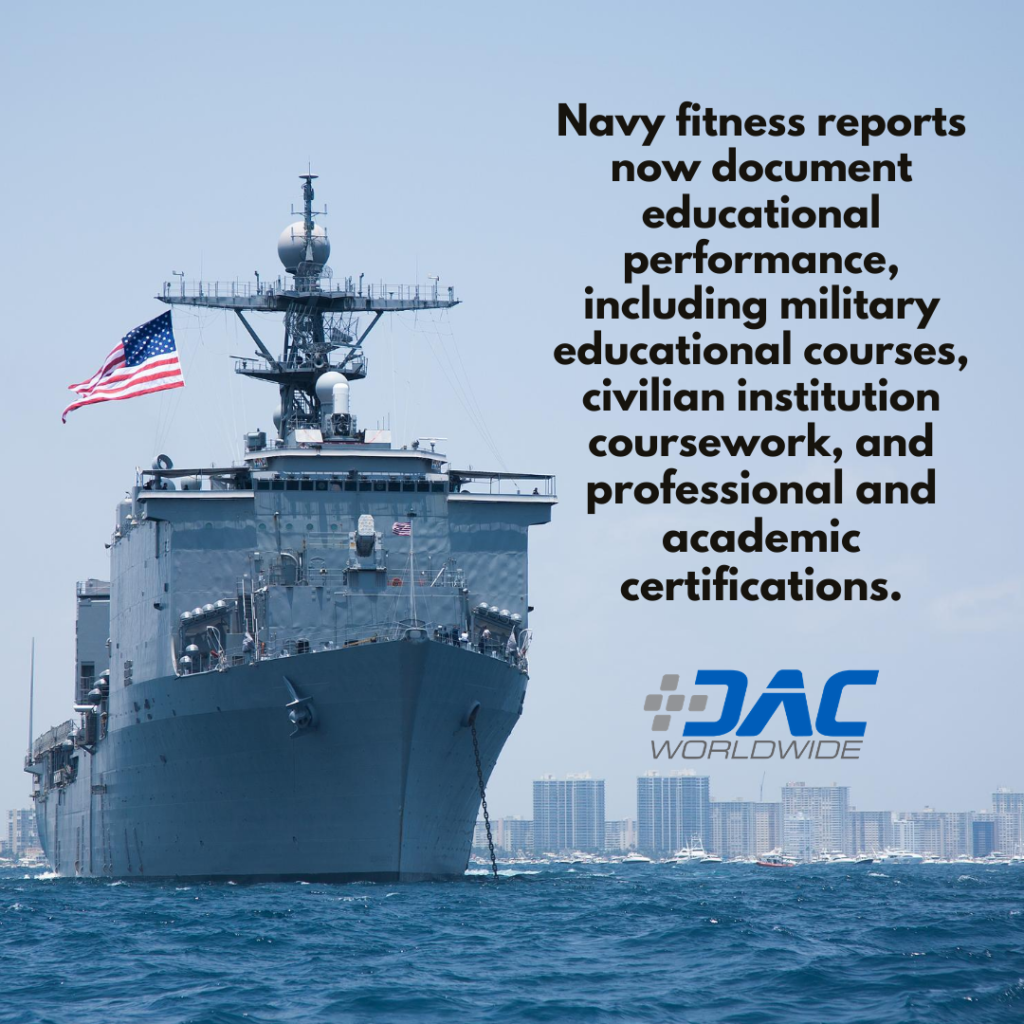 It’s Not Just the Marines
It’s Not Just the Marines
Speaking of the Navy, the Marine Corps Times article notes that the Navy announced in May 2019 “that it was modifying fitness reports to reflect an individual’s educational and training accomplishments, including military education courses, professional and academic certifications, among other things.”
Like the Marines’ new focus on education and continued learning, the Navy’s modified fitness reports are meant to “show that career-long military learning isn’t only job-related technical or tactical training, and that a commitment to higher education will produce Navy leaders with more refined critical thinking skills,” according to an article in the Navy Times.
Future Navy fitness reports will thus document educational performance, including “[m]ilitary educational courses, civilian institution coursework, and professional and academic certifications.” Navy leadership also indicated they will also encourage additional informal efforts, such as learning new technologies.
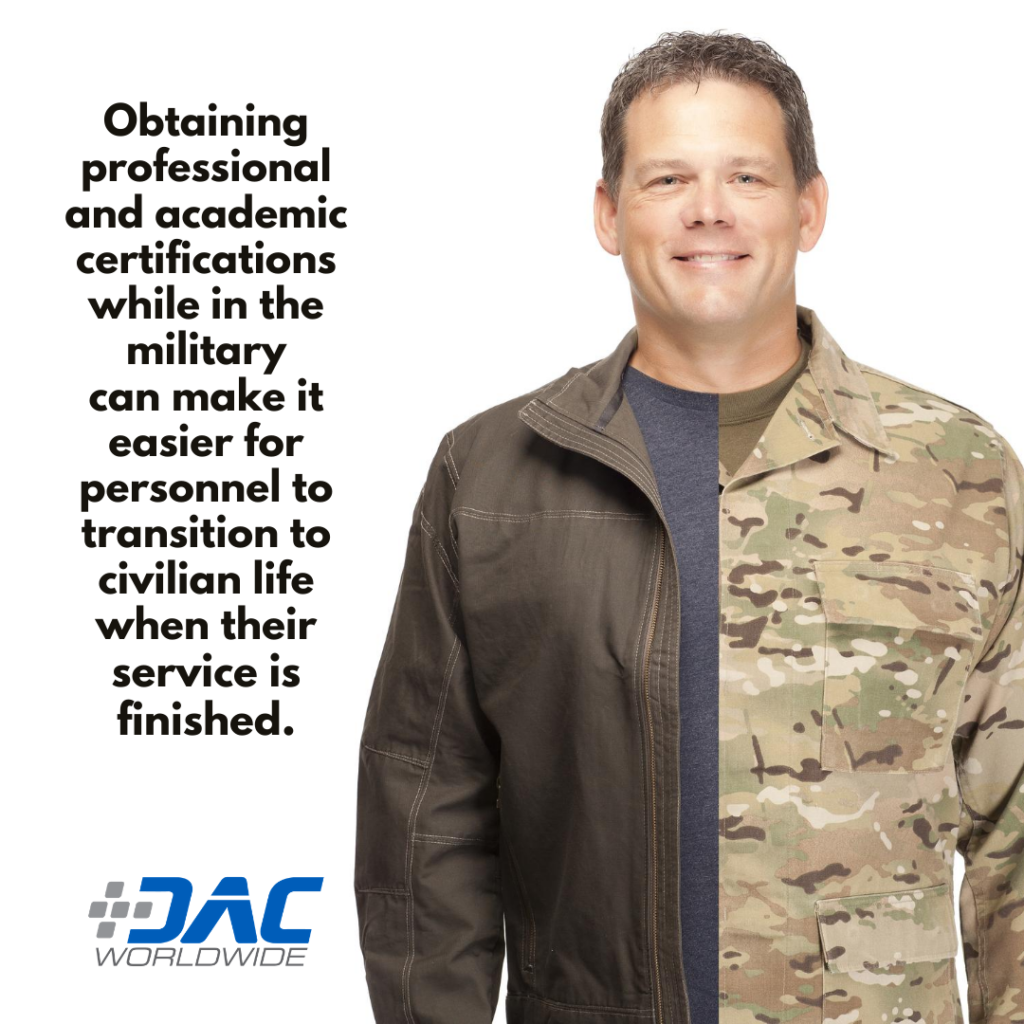 It’s All COOL
It’s All COOL
It’s no coincidence that the Marines and the Navy would emphasize professional and academic certifications. Much of the training that military personnel receive prepares them for future civilian jobs.
Obtaining professional and academic certifications while in the military can make it easier for personnel to transition to civilian life when their service is finished. All branches of the military recognize the importance of certifications in making that transition as easy as possible.
For example, the Marine Corps COOL site (Marine Corps Credentialing Opportunities On-Line) helps Marines see how their military training and experience matches up with civilian credential requirements. Such credentials could include important and valuable advanced manufacturing credentials from entities like the National Institute of Metalworking Skills (NIMS) and the Manufacturing Skill Standards Council (MSSC).
Marines using the COOL site can see whether military funding is available to help attain particular credentials. They can also see how the training and skills they’ve already acquired might match up with specific credentials valued by employers, such as NIMS’ Industrial Technology Maintenance (ITM) certification or MSSC’s Certified Production Technician (CPT) certification. There are also COOL sites for the Army, Coast Guard, Navy, and Air Force.
 Industry Must Also Evolve
Industry Must Also Evolve
Given the military’s new focus on education and continued learning, it’s important that industries that work with and support the military evolve in a similar fashion. The military-industrial complex consists of all sorts of industries that work closely with the military to help them accomplish their mission.
These industries should take a cue from their military counterparts and begin to develop a similar focus on education and continued learning among their workforce. Industry workers will only be able to continue to keep pace with their military counterparts if they’re also seeking new educational opportunities and learning new skills and technologies.
Pushing an industrial workforce or a military organization toward more education and greater skill development can be a daunting task. That’s why it’s imperative that both the military and their industrial counterparts seek out and rely upon the expertise of a trusted technical training partner.
A Trusted Education & Training Partner
DAC Worldwide is a US-based world leader in technical training solutions. For over 35 years, DAC Worldwide has been helping industrial employers and military organizations with realistic, hands-on training systems.
DAC Worldwide offers a wide range of product solutions to fit all your training needs. From training systems that teach a full range of skills to cutaways that increase understanding of how a component works, we have what you need.
For example, many military personnel work in the same skilled occupations as civilians. This means they need a solid foundation in various technologies, including electrical, electronics, fluid power, and mechanical drives.
Whether you train military personnel working on military bases or civilian crews with military contracts, DAC Worldwide’s military training solutions offer an unmatched range of products to allow you to create the course you need or to fill in any gaps that you have in your current training.
Let’s take a closer look at four specific DAC Worldwide products that can take your training program to the next level:
Lock-Out/Tag-Out Training System (811-000)
DAC Worldwide’s Lock-Out/Tag-Out Training System features a realistic, simulated working process environment that facilitates introductory training with hands-on activities related to the process of identifying and locking out sources of dangerous potential energy in an industrial setting. The training system includes two process tanks; a centrifugal pump; a complex, multi-purpose piping network; electrical controls; a variety of lockable system components; and a lock-out/tag-out kit that features a large number of commonly-encountered locking and tagging devices.
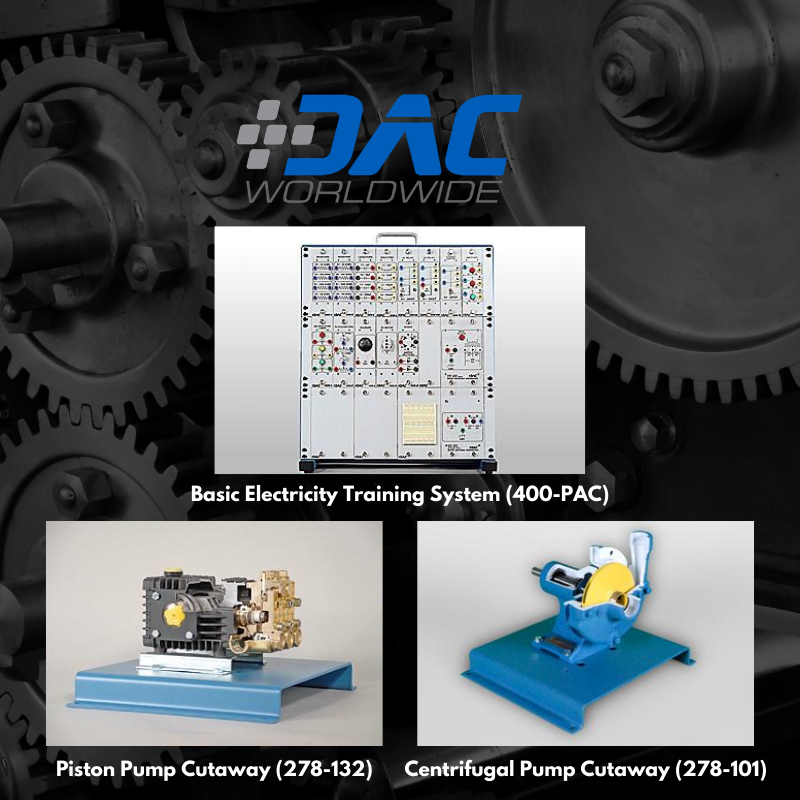 Basic Electricity Training System (400-PAC)
Basic Electricity Training System (400-PAC)
DAC Worldwide’s Basic Electricity Training System teaches basic AC and DC electrical principles. Learners will explore how electricity is used for power and control in various sectors. The trainer covers industry-relevant skills, such as installing, operating, and troubleshooting AC and DC electrical circuits in a variety of applications.
Piston Pump Cutaway (278-132)
DAC Worldwide’s Piston Pump Cutaway is an industrial piston pump that has been carefully sectioned and color-coded to train learners in the design, operation, construction, and maintenance of this common process pump used throughout industry. The cutaway exposes and showcases the complete internal configuration of an industrial piston pump. Moreover, seal features and bearings have been retained to allow realistic, hands-on pump maintenance and operation training.
Centrifugal Pump Cutaway (278-101)
DAC Worldwide’s Centrifugal Pump Cutaway is a sectioned centrifugal pump that provides realistic training in the operating principles, construction details, and maintenance of common centrifugal process pumps used throughout industry and the military. It includes various sectioned components, such as seals and bearings, as well as showcasing the pump’s impeller.
Contact DAC Worldwide Today
Is your organization ready to take its industrial technical training to the next level? Contact a DAC Worldwide expert today for a personal consultation regarding your training needs and how our variety of training systems, cutaways, dissectibles, and models can prepare both industrial workers and military personnel for the future challenges they face.

- Published in News

